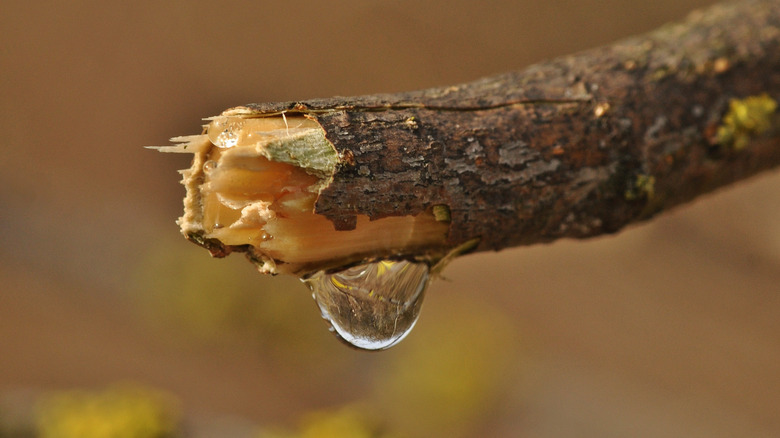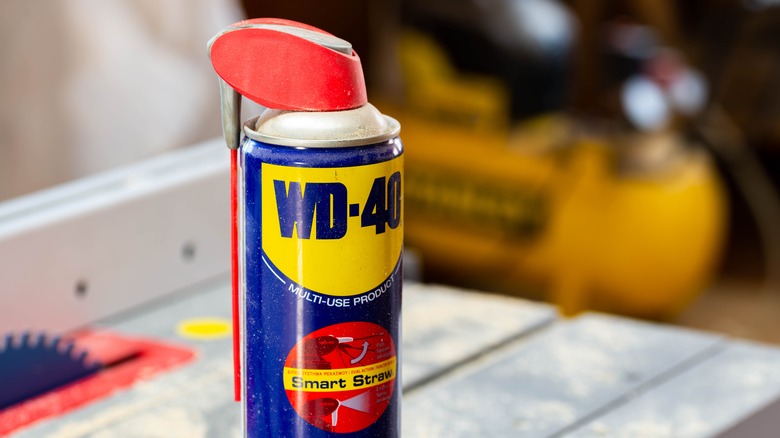How To Use WD-40 To Clean Up Tree Sap
Living in a well-established neighborhood that's full of lush trees and greenery makes for a great view from the windows in your home, but when it comes to seeing out the windows of your car, you might find yourself facing a bit of a roadblock. Leaves, pollen, and small branches from surrounding trees can be easily wiped or sprayed off your car to keep it clean, but the same isn't always true when it comes to tree sap. This sticky substance is notorious for clinging to just about everything in the surrounding area and can require quite a bit of elbow grease to completely clear, but, thankfully, there's a solution that can make the process run much more smoothly: WD-40.
Most people primarily associate WD-40 with its ability to silence squeaky hinges or restore faded plastic furniture, but this popular lubricant has plenty of other applications as well (over 2,000, according to its website). Thanks to its greasy composition — the exact ingredients of which are still kept top-secret — WD-40 also has the ability to help more quickly clean up and break down sticky messes, like residue from labels, gum, and, for our purposes, tree sap.
Removing tree sap with WD-40
When it comes to cleaning up tree sap that's dripped onto your car, the best approach is to catch it early or to avoid it altogether. Sap is how trees move nutrients to all of their branches, and budding during spring and summer requires more flow, so try to avoid parking your car under pines during this active season or routinely check to see if you can spot any sticky debris before driving. If it's fresh, tree sap can be easily wiped away with a cloth soaked in warm water without causing any damage to your paint or windows.
If you weren't quick enough to catch the drips before they hardened, however, not to worry. Simply, grab your trusty can of WD-40 from the garage, thoroughly spray the spot of sap, and then cover the area with plastic wrap or paper towels for a few minutes. After waiting, you should notice that the sticky residue is easier to wipe away. After this, use a cloth with some soapy water to cut through any residual grease, and your car should look as good as new.
What you can use other than WD-40
If you find tree sap on your car but you don't have any WD-40 on hand, there are alternatives: just use the same principle with a few other staple products to get similar results. Other kinds of oil you'd use in the kitchen, like olive or vegetable oil, can be subbed in for WD-40 in a pinch. Use the same method of soaking and wiping away to help dislodge the spot of tree sap, and you should notice it start to budge.
If the tree sap is still stuck, however, it might be time to pull out the big guns. Soaking a rag in rubbing alcohol can help break down the tree sap to allow you to more easily wipe or scrape it away, though it's important to do this with caution as this product can deteriorate the paint on your car. Make sure you don't leave the rag on the spot for too long, and thoroughly rinse once you've cleaned the area. As a last resort, you could also use a detailing razor blade to scrape away the sap; though, if you're not careful, you could end up with damaged paint or scratches.


